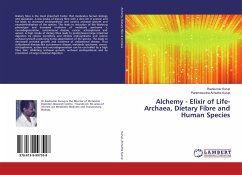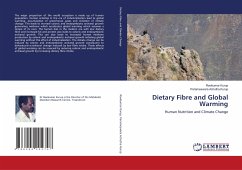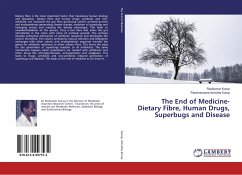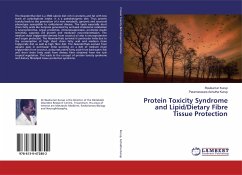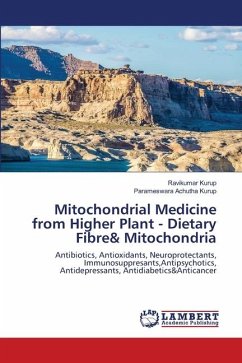
Dietary Fibre - The Elixir of Life
Versandkostenfrei!
Versandfertig in 6-10 Tagen
70,99 €
inkl. MwSt.

PAYBACK Punkte
35 °P sammeln!
Dietary fibre can affect body and cell function. The original evidence linking dietary fibre and body metabolism in relation to systemic disorders came from this laboratory where it was shown that the dietary fibre regulates cholesterol metabolism in the body and contributes to the genesis of metabolic syndrome X. Dietary fibre deficiency produces predominant small intestinal digestion and dietary fibre excess leads to colonic digestion. Small intestinal digestion in the presence of dietary fibre deficiency leads to alteration in colonic flora and archaeal overgrowth. A high fibre diet produce...
Dietary fibre can affect body and cell function. The original evidence linking dietary fibre and body metabolism in relation to systemic disorders came from this laboratory where it was shown that the dietary fibre regulates cholesterol metabolism in the body and contributes to the genesis of metabolic syndrome X. Dietary fibre deficiency produces predominant small intestinal digestion and dietary fibre excess leads to colonic digestion. Small intestinal digestion in the presence of dietary fibre deficiency leads to alteration in colonic flora and archaeal overgrowth. A high fibre diet produces predominantly colonic digestion and leads to suppression of archaeal growth. The colonic archaea seeps through the gut-blood barrier producing archaeal endosymbiosis. Dietary fibre deficiency can lead to increased endosymbiotic and colonic archaeal overgrowth. Dietary fibre is the single most important component of the human diet. Dietary fibre is the substrate that determines symbiosis and symbiotic evolution.



